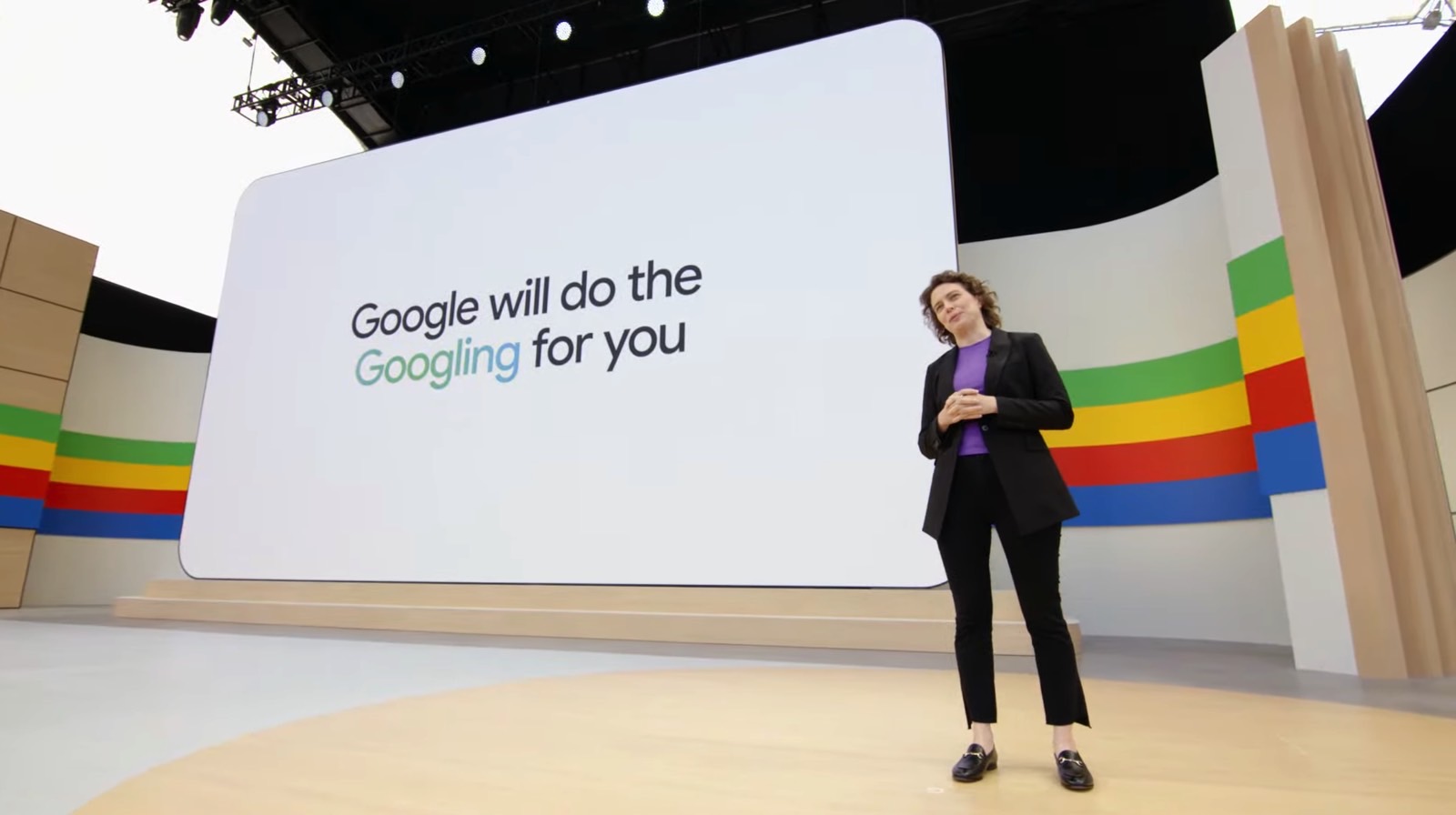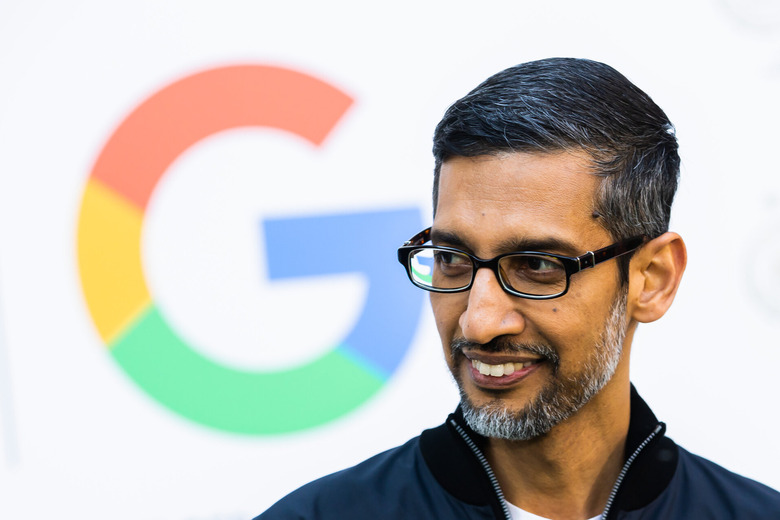Google's New Motto: 'To (Steal) The World's Information, And Make It Universally Accessible And Useful'
I was admittedly blown away by the new capabilities of ChatGPT that OpenAI demonstrated this week — and especially by the human-like voice assistant, the kind of thing that used to be relegated to the realm of science fiction. The thing about OpenAI CEO Sam Altman that still annoys me, though, is the degree to which he acts so messianic about all of this. To hear him tell it, in other words, things like AI, ChatGPT, and LLMs are vital to the sustainability of the human race ("progress in ai will be one of the biggest factors in improving people's quality of life," he tweeted earlier this year).
To his credit, at least he's a true believer about this stuff (near as I can tell). Google, on the other hand, is an altogether different and much more unscrupulous player when it comes to AI — as the search giant demonstrated this week, with its widespread rollout in the US of AI Overviews in Google Search.
It stems from the fact that the Google of today bears little resemblance to the Google of yesteryear, which, even just a few years ago, was still a cool, inspiring company, the kind of place that normalized moonshots like eliminating death. Under CEO Sundar Pichai and the vampiric project manager class that now runs the company, though, the Google of today is a place where layoffs to satisfy Wall Street are now commonplace — and where AI is literally being used to pull off the most brazen copyright heist in the history of the internet.

That sounds overly dramatic, I know, but there's really no other way to describe what's going on with the company's new AI Overviews in Google Search, which are ostensibly about summarizing the results of your searches — but in many cases are just plagiarizing content wholesale from the pages they're supposed to be summarizing.
At Google I/O this week, speakers kept using the same whimsical phrase to obfuscate the thievery: Google will now "do the Googling for you." You could say that, I suppose. But In reality, if the company was honest about what it's doing, you could also say that Google has updated its motto to now describe the company's mission thus: It's "to (steal) the world's information, and make it universally acceptable and useful."
Don't believe me? All you've got to do is read between the lines. As Google explained in its blog post detailing the new AI Overviews in Google Search, "We've meticulously honed our core information quality systems to help you find the best of what's on the web. And we've built a knowledge base of billions of facts about people, places and things" (emphasis mine).
Really, Google? And where, pray tell, did that knowledge and all those facts come from?
Obviously, that base of knowledge was collected from sites like the one below, which Google's increasingly devastating search updates have robbed of traffic and are doing their level best to outright murder. Moreover, now that Google has wiped this particular site off of any prominent Search results position, the company can now set about scraping the site to populate its new AI-written snippets:
This is fucking crazy. Looking at a site that was destroyed by HCU (tens of millions of monthly sessions):
They dont appear for the text on their homepage anymore, BUT, the Generative AI answer literally posts their homepage text verbatim, above the SERPs.
— Martin MacDonald (@searchmartin) May 16, 2024
Oh, but to hear Pichai tell it, this is what the people want! We've got to give the people this AI goodness that they're all clamoring for! Pichai stood on the I/O stage and made that bold claim, mind you, about a week after Google's AI answered a search query about how to pass kidney stones by instructing the person to simply drink urine.
Leave it to the always reliable SEO expert Lily Ray to correctly chide Google for what it's doing here. "Searchers have 25 years of being accustomed to searching on their own terms," she tweeted. "It's a bit presumptuous to assume every single searcher wants this, with no option to opt out."
Well said, even if it won't change a thing. In the end, that's what billions of dollars, a monopolist's market share of internet search, and large language models will apparently get you these days — immunity from the consequences of your own shortcomings and mediocrity.
🔥 AI Overviews.
I go to a bookstore. I scan all the texts of those books. I create Cliff Notes versions of those books. I build a new bookstore right in front of the other bookstore. But you have to go thru me to get there.That's AI overview.
Summarization Engines = Theft— Kristine (@schachin on Threads) 🇺🇦 (@schachin) May 16, 2024
